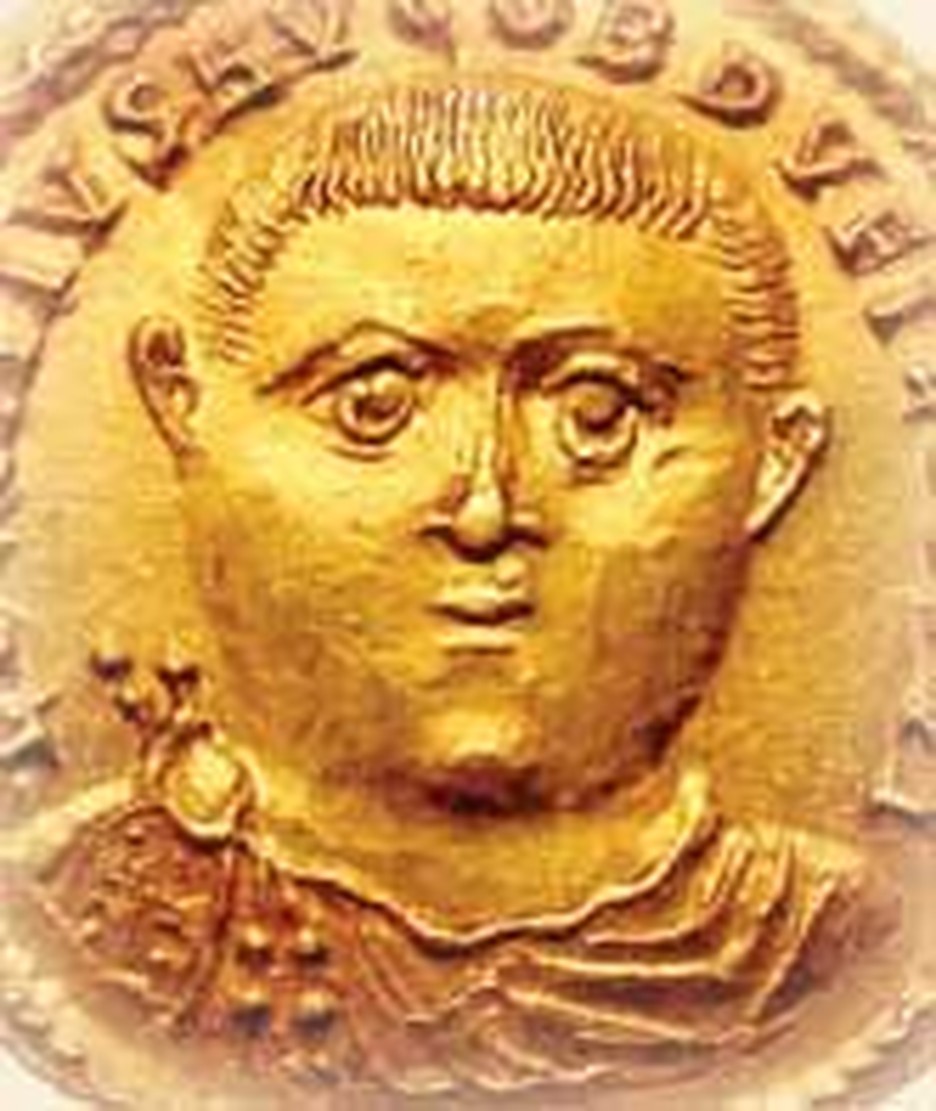
Licinius has embraced Christianity." Even worldly-wise Christians like Eusebius of Caesarea, the first notable church historian, cheered the news. In the year 313, things were looking up for believers. Just a short time before, they had suffered cruelly under emperor Galerius; Maximinus still persecuted those who held the faith, although Constantine favored Christians.
Unfortunately, Licinius had not become a Christian. What had happened was this: Meeting with Constantine in Milan, Licinius had wed the newly-victorious Emperor's half-sister Constantia. The two leaders apparently agreed to share the empire between them. Constantine, having just won a major victory under the sign of the cross, urged a joint decree granting rights to Christians and restoring their property.
Licinius, seeing Constantine's success, must have thought there was something to this new religion. His belief may have been strengthened when he rapidly defeated Maximinus, his rival in the East. On this day, June 15, 313, Licinius rode into Nicomedia (a city about 50 miles from modern Istanbul, Turkey). In the flush of triumph, he proclaimed toleration for Christians.
He sent out the same official proclamation (edict) that Constantine and he had written in Milan. "When I, Constantine Augustus, as well as I Licinius Augustus did fortunately meet near Mediolanurn (Milan), and were considering everything that pertained to the public welfare and security, we thought-- among other things which we saw would be for the good of many--those regulations pertaining to the reverence of the Divinity ought certainly to be made first, so that we might grant to the Christians and others full authority to observe that religion which each preferred..."
For Christians, the nice part was they got their buildings back. These had been confiscated and sold by earlier governments. Evidently the buyers had to foot the loss, because the edict said, "...the same shall be restored to the Christians without payment or any claim of recompense and without any kind of fraud or deception..."
It is clear Licinius and Constantine hoped to buy God's favor by supporting Christian rights. "Let this be done so that, as we have said above, Divine favor towards us, which, under the most important circumstances we have already experienced, may, for all time, preserve and prosper our successes together with the good of the state."
Licinius was soon marching troops against Constantine's forces. Each wanted total control of the whole Roman Empire. Around 320 Licinius decided Christians needed putting down. He expelled believers from the army and civil service and killed some for their faith. This was the case with the Forty Martyrs of Sevaste. When they refused to pour drink offerings (libations) to Licinius' pagan gods, they were beaten, jailed and finally made to stand naked on ice one winter night until they froze to death.
Constantine defeated Licinius, whom he would eventually execute for treason.
Bibliography:
- Barnes, T.D. Constantine and Eusebius. Cambridge, Massachusetts: Harvard University Press, 1981.
- DiMaio, Michael, Jr. "Licinius (308-324 A.D.)" De Imperatorbis Romanis. http://www.roman-emperors.org/licinius.htm
- Eusebius. The History of the Church from Christ to Constantine. [Ecclesiastical History]. Baltimore, Maryland: Penguin Books, 1965.
- "Valerius Licinius Licinianus (AD ca. 250 - AD 324)." Illustrated History of the Roman Empire. http://www.roman-empire.net/decline/licinius.html
- Various encyclopedia and internet articles.








